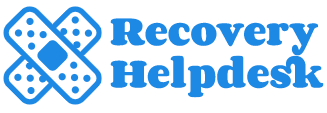
A Call From A Rehab
I got a call from a patient at a residential drug treatment center today. He had been using Opana pretty heavily, and decided to go to rehab to get his life back on track. He had broken up with his girlfriend, and his little girl was staying with his mother.
They’ve been giving me a Suboxone taper to help me detox from the OPs, he told me. At first, I felt okay and I had some time to do some thinking. I think I understand why I’ve been using.
It’s the pain and the sadness I feel inside, and it comes out in anger, and it gives me an excuse to use. But they’ve been cutting my dose every day. And now I’m feeling pretty sick, and my mind is foggy and I can’t really focus.
If I keep using, I’m not going to be able to see my daughter. And I’m afraid. I want to be on maintenance. Methadone or Suboxone.
The staff here are pressuring me about it and telling me I don’t need it. I had to use the client phone to call you because my counselor wouldn’t approve.
Why Am I Not Surprised?
I know this rehab well. Like most rehabs, this one doesn’t really offer much rehabilitation.
Like most rehabs, this one offers nothing more than short-term detoxification; and some basic, incomplete and biased recovery education.
Science and practical experience make it clear that even after detox, the addiction itself remains alive and well. For most people, detox alone is not enough to establish a real recovery. So why the hostility toward methadone and Suboxone, two proven treatments that promote conditions of safety and often set the stage for true rehabilitation?
Most rehabs are based on the Alcoholics Anonymous 12-step model. Many rehabs are staffed by people who go to AA and embrace the AA culture.
This isn’t all bad, of course. There is a lot that is good in the 12-step model and culture. But along with the good, sometimes comes some of the less good –like black and white thinking, rigidity of approach, resistance to change based on scientific and medical progress, a visceral animosity toward medication-assisted recovery, and an unexamined affection for dangerous and ineffective tough-love approaches.
No More Business As Usual
We’ve made a lot of progress in our understanding of the brain, addiction and recovery. But most rehabs are still doing business as usual.
It’s time for residential drug treatment programs to integrate medication-assisted treatment into their client education and aftercare plans. The result will be fewer post-discharge relapses, fewer post-discharge overdoses, fewer repeat customers, more reunited families, and more recovery.
